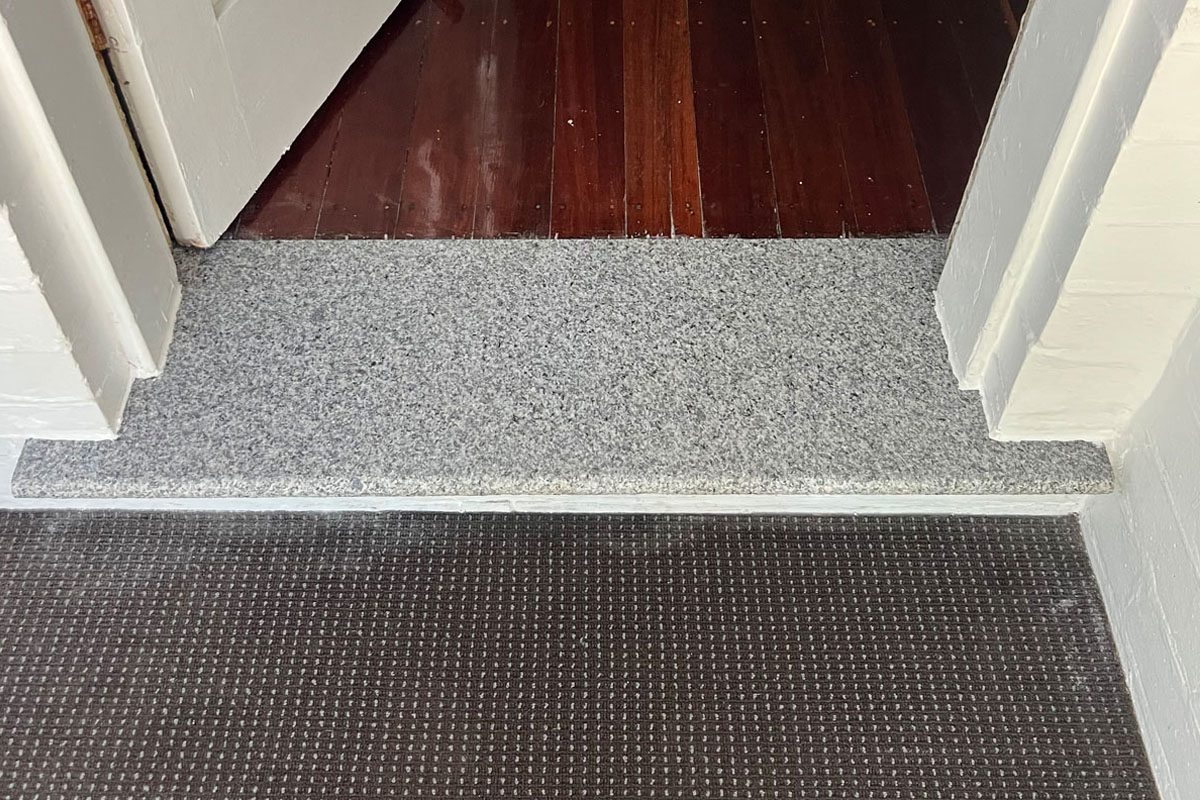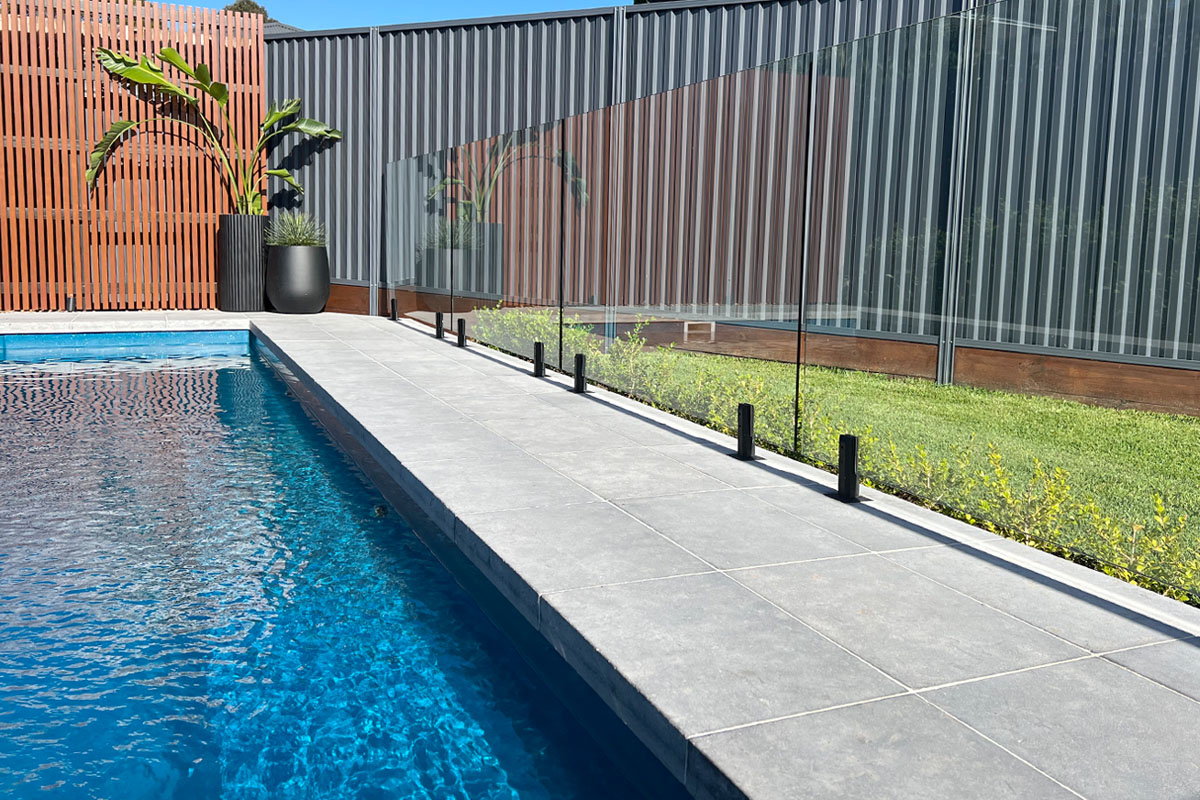What Is Permeable Paving and How Does It Work?
If you’re looking for an environmentally responsible paver, our suggestion is to choose a permeable paver.
Why?
Because, like the name suggests, permeable pavers are made from a particular type of stone that allows fresh, clean water to drain through them and flow into aquifers and groundwater supplies. As such, permeable pavers stop the rainwater from draining off into stormwater drains or onto your neighbour’s properties.
How Permeable Paving Works
Permeable paving is made from porous stones. This means that when it rains, instead of the water pooling on top of your pavers or running off them, it seeps into the stone is and drains into the ground. The water percolates, such as it would in a coffee pot, through the paving into a layer of gravel that acts as a natural filter, cleansing the water of any pollutants.
The main function of permeable paving is to reduce the pressure on ageing and overloaded drainage systems by handling rainwater in one of two ways: either by dispersing it quickly into the ground or by holding onto it and letting it seep out gradually.
Why is Permeable Paving Needed?
During long-spells of dry weather, pollutants such as heavy metals, hydrocarbons, oil, rubber, fertilisers, pesticides and detergents build up on your pavers. When it rains, these pollutants end up being washed downstream into rivers and drainage systems where they cause damage to wildlife habitats. During heavy downpours the speed at which these pollutants get washed off can be quite rapid, causing flash flooding, erosion and great levels of damage to property and the environment. When permeable paving is installed, the amount of water and pollutants entering the water cycle is minimised.
So if you are about to start a driveway, patio or any other paved surface project and want to invest in the most environmentally sensitive material, talk to us about natural stone paving options.
As well as reducing pollutants, permeable pavers also:
- Reduce overall irrigation demand
By allowing water to seep into the ground, the direct and surrounding areas need much less man-produced irrigation. Doing this will help you save money and reduce your daily water usage for irrigation purposes. - Reduce local ambient temperature
Light coloured permeable stones reflect the sun’s rays, thus deflecting the heat and reducing the local ambient temperature. This helps improve the health of your surrounding vegetation and air quality. - Control erosion
In areas with loose soil that are prone to heavy rain, permeable paving can be used to retain soil and prevent erosion. If lawns, gardens and outdoor living spaces are not properly secured and protected, heavy rains can runoff them causing damage and erosion that will be costly and time-consuming to fix. - Reduces peak rates of discharge
Permeable paving helps to re-establish a more natural hydrological balance between the built and natural environments that are prevalent in your home. This happens by trapping and releasing precipitation into the ground instead of allowing it to flow into drains and rivers. By reducing the peak rates of water being discharged through the soil, this process also prevents large and fast pulses of precipitation to flow into the stormwater system.
Why Doesn’t Every Home Have Permeable Paving?

An example of installed permeable paving in a home. Image source: Shutterstock.
While there are many benefits to install permeable paving, it hasn’t become a mainstream option in Australia for a few reasons. These include:
- Lack of knowledge
Unlike countries such as Germany, England and the United States, where permeable paving is often a prerequisite, Australia doesn’t have such strict guidelines. In Australia permeable paving is considered a personal choice. The issue is that many architects and homeowners simply don’t know enough about the benefits of permeable paving to choose it. - Cost
The installation of permeable paving requires a large amount of sub-grade work to be completed. This generally makes it a more expensive solution compared to traditional paving systems. Many people also believe (and fear) that permeable paving has higher maintenance costs, but this is debatable. Their argument is that oil, grease and fine organic and inorganic matter can build up within the gravel gaps, making it costly to maintain. However, regular sweeping can reduce this risk. - Strength
Permeable pavers aren’t as strong or durable as traditional or asphalt pavers. As such, if you put consistent pressure on them, the pores of the paving can collapse and damage the paving. This is why permeable paving isn’t recommended for highways, high traffic roads or heavy vehicles that park on driveways. Permeable paving can uphold the weight of standard sized vehicles.
Applications
Permeable paving has many applications. The most common include:
- Low-volume pavements
- Residential roads and driveways
- Sidewalks
- Parking lots
- Schools
- Low-water bridges
- Patios
- Courtyards
- Well linings
- Tree surrounds
- Walls (including load-bearing walls)
- Swimming pool decks
- Commercial and industrial environments
- Water harvesting
There are also many types of permeable paving, all of which are used for different purposes:
- Porous asphalt is used on highways to remove excess water.
- Single-sized aggregate (commonly known as loose gravel) is used for very low-speed surfaces such as driveways or pathways.
- Natural stone is used for its beauty, durability and function. The effect lends itself to an old-world, hand-crafted look that meets modern and environmental standards.
- Plastic grids allow for a 100% porous system and can help reinforce gravel driveways, parking lots, and fire lanes. You can also plant grass with plastic grids.
- Porous turf can be used for areas with occasional parking, such as stadiums or churches.
- Permeable interlocking concrete pavers are individual units that can be laid out in an interlocking grid pattern, filling the gaps with grass or small stones. This type of paving is popular in public areas due to its architectural appeal.
- Permeable clay brick pavers are similar to interlocking pavers but are composed of fired clay.
- Resin-bound paving is a mixture of a clear resin and aggregate, used for areas with pedestrian and vehicular traffic, including walkways, driveways, and parking lots.
- Bound recycled glass porous pavement is a mixture of post-consumer glass with resins and binding agents and is appropriate for both pedestrian and vehicular traffic.
- Wood mulch is highly permeable but requires regular maintenance and topping up from time-to-time. Its main application is use in pot plants and in gardens.
If you are considering investing in and installing permeable paving for your home and don’t know where to start, reach out to our expert team here. We would be delighted to help you.


